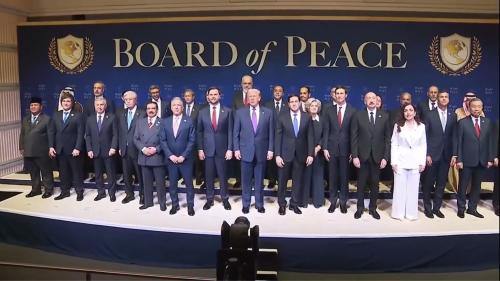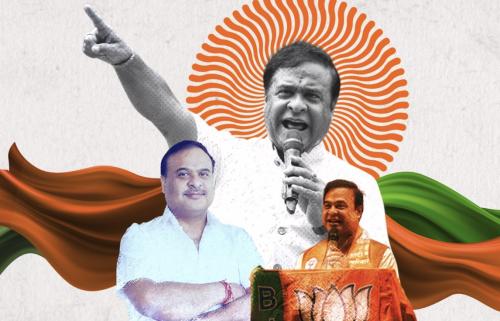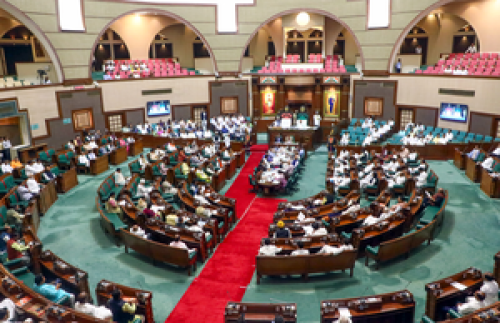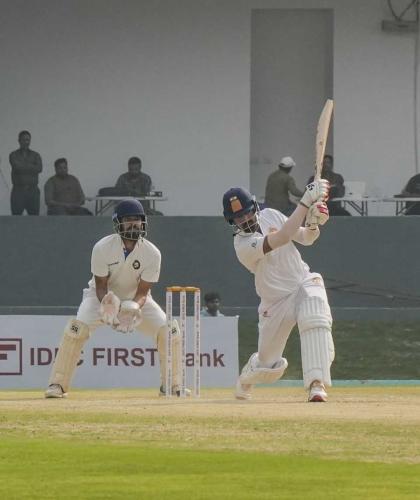BY D.C. PATHAK Evacuation of the last American soldiers from Kabul in what was a messy situation to say the least -- created by a combination of flawed assessment, inconsistency of policy and a wrong belief that the more resourceful side would win a non-traditional war -- calls for a reevaluation of the entire course of developments in Afghanistan during the two decades of the 'war on terror', a conflict that seemed to have gone on there 'forever'. It was an 'asymmetric' war in terms of the destructive capabilities of the two sides, global support enjoyed by the US-led 'World Coalition' and the logistic strength that the Americans could muster to keep their troops in Afghanistan. However, the 'asymmetric' nature of the combat worked in favour of the Al Qaeda-Taliban combine in three ways -- the Mujahideen could take to the path of 'covert' attack on their enemy at a place and time of their choosing, the Islamic radicals acted as a one-man army needing only automatic guns, grenades and minimal food sustenance to keep going with the driving force of Jehad and the militants had the implicit backing of the native Afghans whereas the US and NATO troops would count only on the government's machinery and security forces. In Afghanistan, the West facing an environ of insurgency by Islamic revivalists ran into three basic problems -- there was a deficiency of Intelligence, city-focused operations of door-to-door searches did not weaken the stronghold of the Mujahideen in the sprawling rural Afghanistan and the Pentagon had a misplaced reliance on Pakistan in the matter of preventing the use of Pak-Afghan border by the Taliban whose stronghold lay in Khyber Pukhtunkhwa (KP). In Afghanistan the Taliban can be said to have emerged victorious in the 'war on terror' by default since it was the US that consciously decided to pull out of the 'battleground' for reasons of its national policy that was against keeping American soldiers unprofitably engaged in distant lands just for the sake of 'policing the world'. The Islamic radicals got a certain degree of political legitimacy when the US directly engaged Taliban for peace talks at Doha and agreed on a time-bound withdrawal of troops from Afghanistan in return for a guarantee that Taliban would not allow Al Qaeda to use the Afghan soil for another attack on America. Pakistan was able to mediate in this exercise because of a poor Intelligence reading in the American camp about the Taliban-Al Qaeda relationship and also about the duplicitous role of Pakistan in the 'war on terror' because of which the Pentagon continued to accept Pakistan as an ally like before. The Taliban got back the Afghan Emirate on its terms and unlike in 1996 it had an open support from Pakistan this time -- the Pak backing was from behind the scenes earlier. In 1996, only Pakistan, Saudi Arabia and the UAE had recognised Taliban rule -- the last two did it on the persuasion of Pakistan. However, as the Taliban opened its radical fangs against these two US allies in the Muslim world, an adversarial relationship developed between them -- this hostility only intensifying with the passage of time. In a significant geopolitical alignment, the Kabul Emirate invited both China and Russia, besides Pakistan to its inauguration and added Iran, Turkey and Qatar to the list of invitees. While the anti-US profile of the Taliban remains as strong as in the past, the latter evidently mentored by Pakistan has made some sure-footed moves to handle the global political scene. In a move designed to flaunt its new strength before the US, the Taliban even tinkered with the idea of fixing the swearing-in of its cabinet for September 11. The US would do well to realise the long-term threat it faces from Islamic radicals and the danger that the rise of Islamic militancy posed to the democratic world particularly after the advent of Sino-Pak military alliance. Both Communist China and fundamentalist Pakistan are on the side of Islamic radical forces giving a new direction and strength to the emerging bipolarity between the US-led democratic order and the camp led by China -- with Xi Jinping making no secret of his ambition of presiding over the second superpower. The developments in Afghanistan leading to the installation of an Emirate at Kabul under the complete sway of Pakistan, affect India's security much more than whatever long-term threat they might pose to the US because of the anti-West legacy of radical Islam. Even during the peace negotiations at Doha, Pakistan had questioned the presence of India in Afghanistan -- Prime Minister Imran Khan describing Afghans as his 'brothers in faith'. Communal militancy growing into a faith-based terror is the phenomenon that Pakistan has used as the instrument of its 'proxy war' against India and there is little doubt that a new level of threat to Kashmir has risen from the Talibanisation of the Pak-Afghan belt. For India, this danger is both external as well as internal because of the mischief Pak ISI was capable of doing on the domestic turf here. Apart from stepping up counter-terror operations in Kashmir and elsewhere, we need to get Islamic institutions and Idaras in India to express themselves clearly against the advocacy of Jehad for solving political disputes of our times. India and the US representing the leadership of the democratic world must work together to get the Muslim countries owing allegiance to the Saudi-led Organisation of Islamic Conference (OIC) to take a similar line. The two largest democracies cannot silently watch the 'war on terror' moving in the direction of a faith-based warfare between Islamic 'revivalists' and the democratic order. The Taliban-led Emirate of 1996 had unleashed its ire against the US and the symbols of idol worship in Afghanistan because of its ingrained hostility towards both. At present the Communist dictatorship of China, which is in alliance with Pakistan, is happily watching the conflict between the Islamic extremists or radicals and the US-led West which represents a potential 'clash of civilisations' -- presently masked by the 'political' contest between democratic values on the one hand and the dictatorship of Communism and Fundamentalism, on the other. Geopolitics is running into an entirely new kind of global polarisation in which Islamic fundamentalists tutored by Pakistan are on the same page as Communist China -- because of the Sino-Pak axis -- amidst the latter's push towards becoming another superpower. China has already set off the process of securing an economic hold on Afghanistan through its Belt and Road Initiative (BRI). There would be a time when Islamic revivalists might confront both the West -- with which they had a historical score to settle -- and the 'godless' realm of Communism that they would never accept but the democratic world cannot put up with the dark horizon of blind violence seen in the present and must strategise to mitigate it through counter-operations, diplomacy and closer exchange of information. Meanwhile, in South Asia there is work for India waiting to be put on a faster completion. In the subcontinent and also through the Act East initiatives, the danger of radicalisation had to be explained on various forums and bilateral and multilateral cooperation for mutual economic benefits emphasised in a more intense fashion. India's full participation in Quad would have a natural follow-up in building special friendships with countries like Vietnam, Myanmar and Australia -- this is already being done -- and strengthening cooperation with Indian Ocean Rim countries. Internal security is extremely important now. Fortunately, our Intelligence coordination is excellent at present -- a fuller attention is required for ensuring an integral action in which the first responders varied from the state police to the army on land or the Coast Guard on the marine front. Use of drones by Pakistan in aid of cross-border terrorism in Kashmir has necessitated new counter-measures to make under-radar detections possible. In border states where the Armed Forces Special Powers Act (AFSPA) is applied, a key step is to wean the youth from anti-national influences through a mix of economic, disciplinary and legal measures -- winning over the families wherever possible. In Kashmir, the average Muslim likes to follow the tradition of visiting the shrines and Mazars of Pirs and saints -- this important element of Kashmiriyat had been suppressed by the radicals and deserved to be patronised. An interactive administrative machinery has a role to play in complementing the deterrence created by tough policing. Development promotes security and vice versa. In the context of Kashmir, India has to send a message again that cross-border terrorism will invite more surgical strikes deeper down in the enemy territory. While on the LAC our military build-up is meant to 'check and balance' the Chinese activity, a punitive approach to any Pak mischief on the LOC is quite in order. Above all, India has to be ready to deal with security threats all on its own. (The writer is a former Director Intelligence Bureau)
Learning from an 'asymmetric' war
- by Rinku
- September 19, 2021 2 minutes
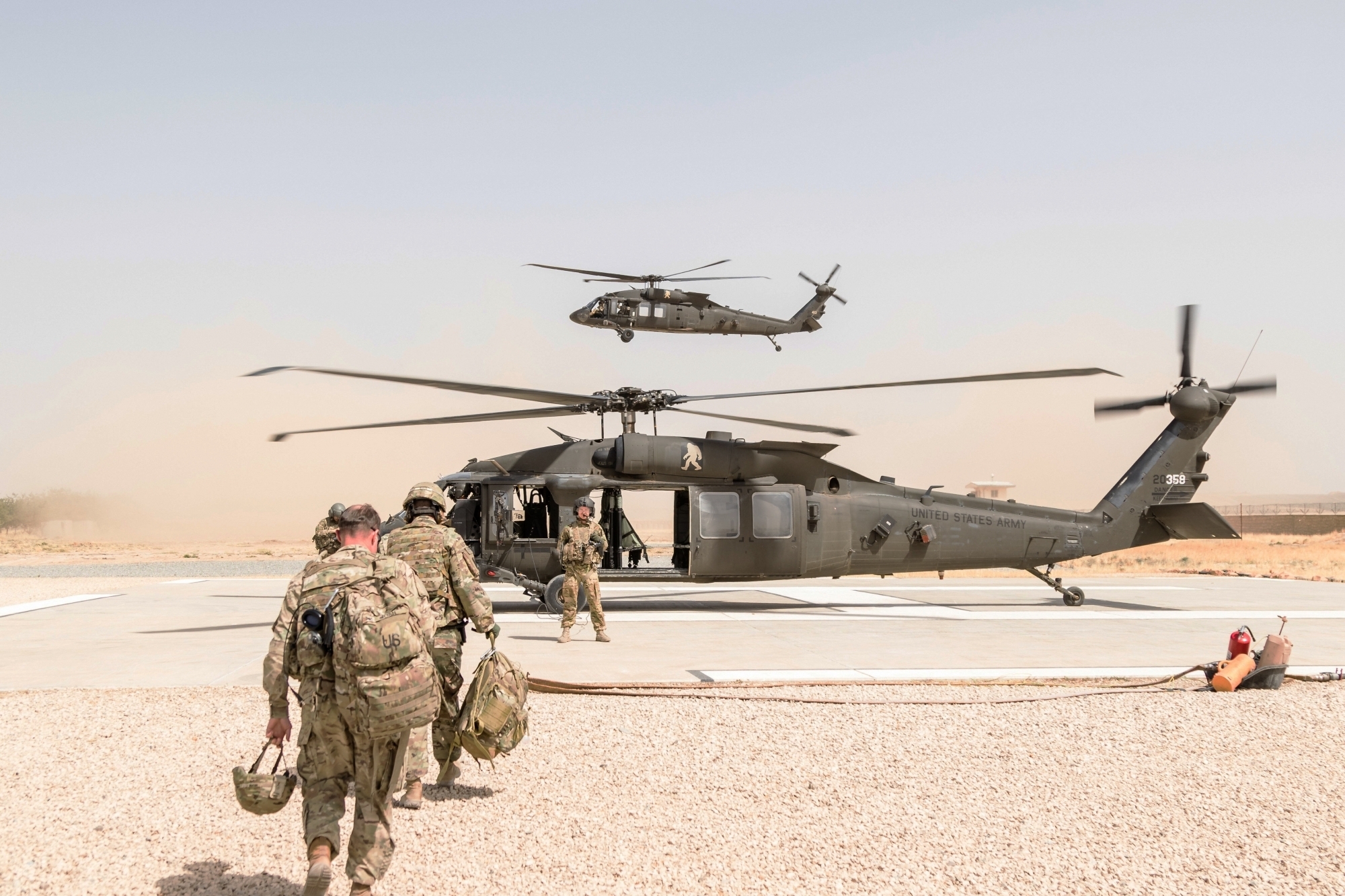
US soldiers. Photo: Brian Harris/Planet Pix/ZUMA/dpa/IANS
Your Stars - Sept 17 - 30
September 19, 2021



